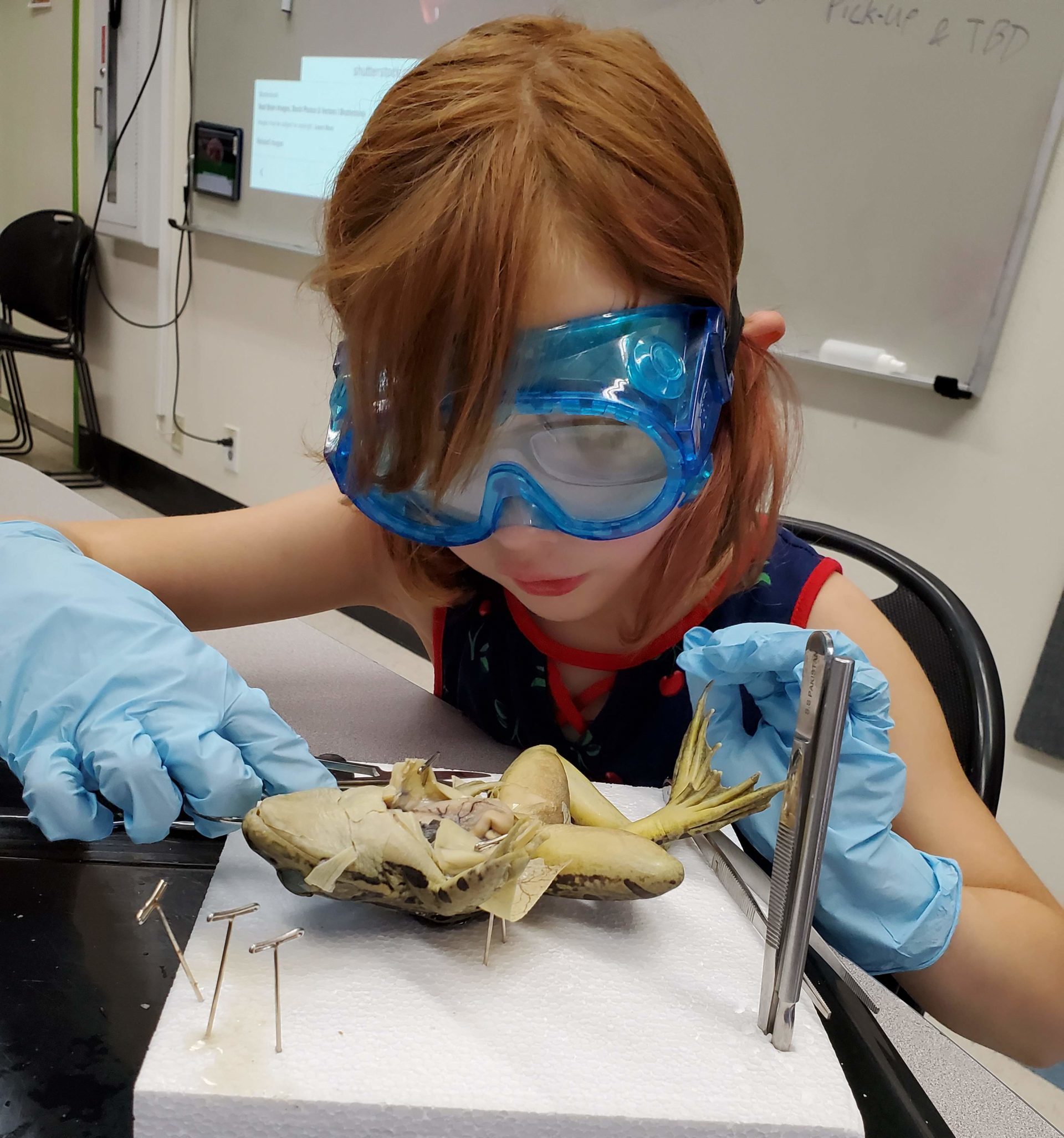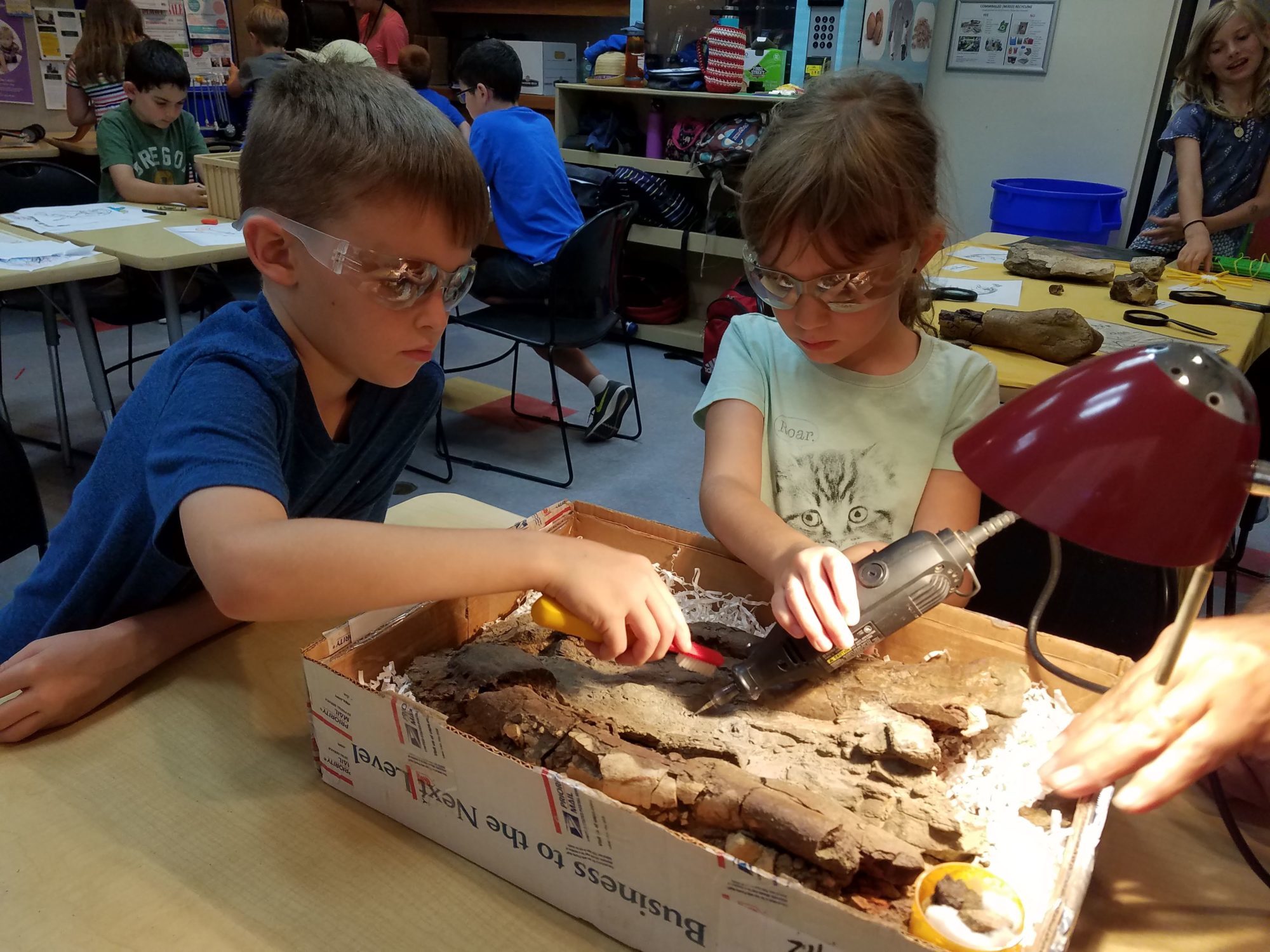Sign your class up for a Field Trip Enrichment Lab!
Extend your field trip experience with an enrichment lab in our very own classrooms! All labs will be facilitated by a Eugene Science Center Educator with some having the option to be a self-guided walk through experience. The educator lab groups will have a maximum limit of 15 students per group. Larger groups can be split into multiple sessions and rotated among other field trip options (Exhibit Areas & Planetarium).
Labs are subject to instructor and classroom availability and may not be available on all days.
Enrichment labs arranged by grade level
We are developing all new enrichment labs. Please check back regularly to see updated offerings.
Where physics meets fun — one wobble at a time!
Explore the science of stability, motion, and equilibrium in our hands-on Balance Builder Lab! Perfect for curious minds of all ages, this on-site physics lab invites students to test, tinker, and discover how forces like gravity and center of mass work together to keep things balanced — or send them toppling.
From building balanced towers and testing tilting structures to creating your very own balance toy, participants will learn real-world physics through playful, minds-on exploration. It’s STEM learning in action — no lab coat required.
Best suited for students in Kindergarten through 5th grade.
Available as educator facilitated with group or as self-guided walkthrough activities.
Step into the world of bees with our Bee-havior on-site lab — a hands-on, interactive experience that brings the science of pollination, communication, and adaptation of bees to life! This enrichment lab explores the incredible anatomy and behaviors that make bees essential to ecosystems (and our food supply!).
Students will discover how bees use tiny hairs to collect pollen, how their compound eyes see the world, and how the famous bumblebee “waggle dance” helps them share directions to the best flowers. Learn to explore their roles in the environment and find out why protecting pollinators matters.
Ideal for grades K–8 and anyone curious about the science behind the sting.
Available as educator facilitated with group or as self-guided walkthrough activities.
Frog Dissection Lab
In this hands-on lab, students explore the internal and external anatomy of a frog to better understand how its body systems support life on land and in water. Guided by an instructor, students identify key organs like the heart, lungs, and stomach while developing observation and dissection skills. This engaging experience brings life science to life through real-world exploration of vertebrate anatomy.
This activity is best suited for students in 5th grade and up!
This is an educator facilitated activity.
Brilliant Biology Lab
What makes life tick? DNA! In this hands-on enrichment lab, students become molecular biologists as they extract real DNA from strawberries and even their own cheek cells. Using simple tools and techniques, participants will uncover the genetic code that shapes all living things and take home a sample of DNA they’ve isolated themselves. It’s a fun, gooey, and unforgettable look at the blueprint of life!
Best suited for students 2nd grade and up!
This is an educator facilitated activity.
The Spark Lab
Get ready to spark some curiosity! In this hands-on electricity lab, students explore the power of electrons through three exciting experiments. They’ll build their own working battery, test everyday objects in Does It Conduct?, and experience hair-raising fun with a real Van de Graaff generator. From circuits to static, this electrifying enrichment lab lights up key concepts in physics with shocking discoveries and unforgettable, high-voltage fun!
Best suited for students in 3rd grade and up!
This is an educator led activity.
Spincredible Lab
Get ready to twist, turn, and tumble through the fascinating world of physics! In this hands-on enrichment lab, students explore motion, force, and balance with fun and interactive activities. They’ll design and test their own spinning tops, experience centripetal force, and bend their brains with dizzying optical illusions. Plus, they’ll investigate an ancient invention—the Archimedes screw—to see how spinning motion can move water uphill! It’s a whirlwind of discovery that brings physics to life through creativity, motion, and fun.
Best suited for students in 3rd grade and up!
This is an educator led activity.
Jurassic Journey Lab
Step into the shoes of a paleontologist and unearth the mysteries of ancient life! In this hands-on enrichment lab, students explore fossils up close, learn how they form, and dig into the science of prehistoric creatures. Activities may include mock fossil digs, fossil casting, and examining real or replica specimens to uncover clues about life millions of years ago. It’s a prehistoric adventure packed with discovery, critical thinking, and ancient wonders!
Best suited for students in 1st grade and up!
This is an educator led activity.
This enrichment lab pairs extremely well with our newest planetarium show, Dinosaurs: A Story of Survival!
Pricing
Each enrichment lab is 30 to 45 minutes in duration and designed for groups of 15 students or less. Groups with more than 15 students can be split into two groups and registered for two back-to-back or concurrent programs.
- $140.00 minimum charge for groups with 15 students or fewer
- Some labs require additional fees
- Enrichment Lab fee is reduced when booked in combination with exhibits and/or planetarium




